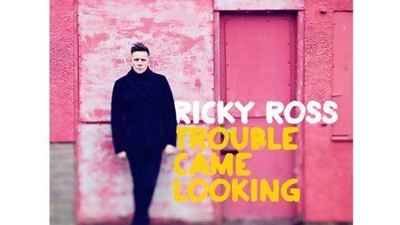The singer-songwriter Ricky Ross is best known for fronting the Glasgow, Scotland band Deacon Blue, whose string of 1980s hits included Real Gone Kid and Fergus Sings the Blues. His sixth solo album, Trouble Came Looking, is a spare acoustic work set against a backdrop of global economic recession.
Well, the album’s partly about poverty and displacement, so I tried to tell people’s stories one line at a time, the way those great old country songs do. I didn’t want to preach or tell people how they should feel – the facts behind the stories are powerful enough.
Yes. It took me a long while to work out how to approach that song without it sounding trite. In the end, I realised I should write it from the perspective of one of the survivors going back to this place that had blighted their whole life. Hopefully it works.
Kind of, yes. I’m involved in a radio show for BBC Scotland that deals with ethics. One week an organisation called The Poverty Truth Commission came in and, through them, I got to hear some very powerful and moving stories. I’ve also got to know some asylum seekers in Glasgow who’ve had the most amazing journeys and are totally inspiring.
The Christianity I was always drawn to had figures that were involved in social justice. That’s my kind of saint – people who have a real compassion about them. Christianity doesn’t have the monopoly on that, of course. A good friend of mine in Glasgow, Habib Malik, runs Islamic Aid and he has the same stuff running through his veins. He goes off all over the world to tackle issues that trouble him.
Sometimes when you sit down to write a protest song it can sound a bit clumsy. Or you get the big charity song that's well-intentioned but sounds awful, so people think, do I really want to be associated with that? Then you listen to Hard Times by Stephen Foster, which is more than 150 years old. Or Which Side Are You On? [written by Florence Reece in 1931]. Both those songs are still incredibly powerful and potent.
To be honest, most of them are collaborations. There was a period in my life when I wanted to do nothing else, but it’s levelling out now. The trouble is it’s a very well--defined and competitive world and the people who are big in the pecking order are almost unknown outside of it. Also, the landscape in which songs are wanted has changed and you’re not always sure you want to be scrabbling for a cut on such and such a pop record. I’m not putting it down – you just realise you’re not going to be any good at it.
Ha! We’ve managed to do it really well, I think, but sometimes the intensity can be too much. In the past, what was happening to me on a bad day was happening to Lorraine and by default to our kids, and on a really bad day, even the pets got it in the neck (laughs). I prefer it now, where we only do Deacon Blue together some of the time. I make my solo albums and I can go and watch Lorraine acting in a play. I enjoy seeing her do well in something that has nothing to do with me.
Follow us on Facebook for discussions, entertainment, reviews, wellness and news.
Follow us

